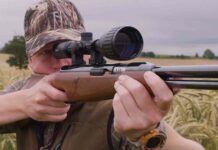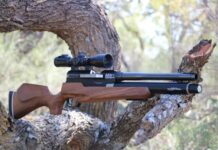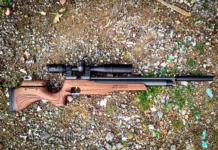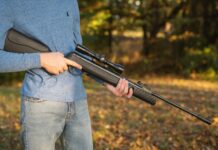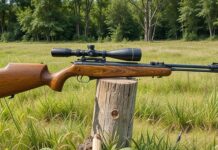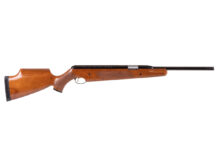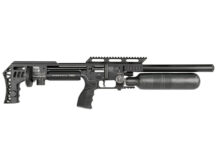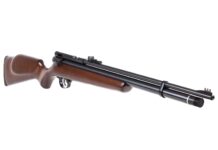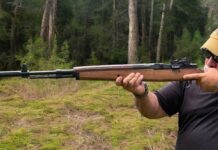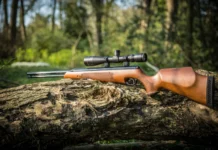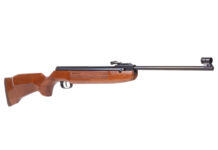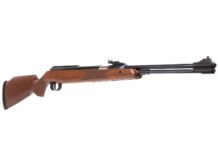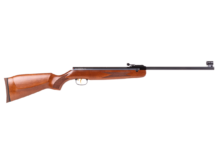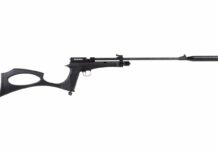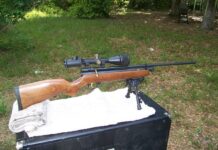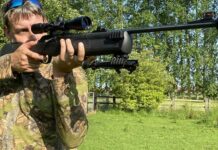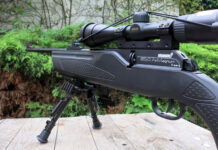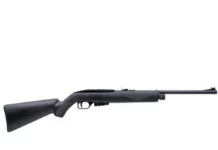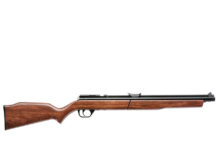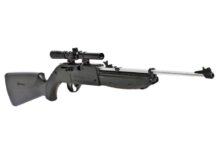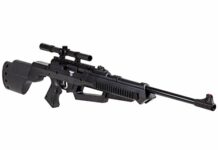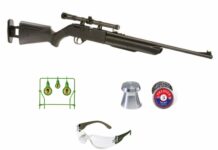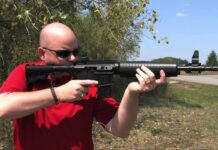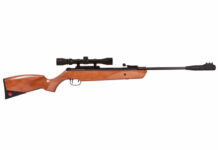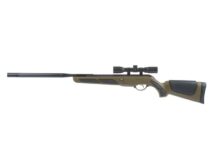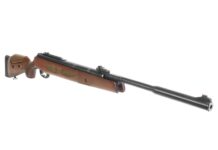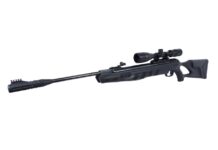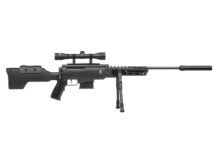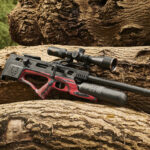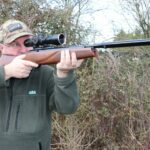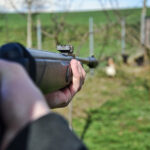Have you ever seen a shotgun and just knew you had to have it? That was the Mossberg 940 Pro Waterfowl for me. It was mine at first sight, I just needed to wait six months after it was announced until I could find a way to track one down! I am not a man of many shotguns either, but the 940 Pro Waterfowl has the perfect blend of features to make a high-performance duck hunting gun that is built to work hard for a reasonable price.
Table of Contents
Why The 940 Pro Waterfowl?
I wanted a backup gun for my Mossberg 930 Waterfowl which served as my all-purpose shotgun for hunting ducks, geese, turkeys, pheasants, crows, doves, and anything that flew. I wanted to upgrade to a better gun but a friend recommended I just get a second 930 because I knew how it worked and was comfortable with it and I could use the guns interchangeably. While exploring that idea I found the 940 Pro Waterfowl and realized I could have the best of both worlds, it works just like a 930, but better. For more info check out my podcast episode All About Shotguns & Shells For New Duck Hunters.
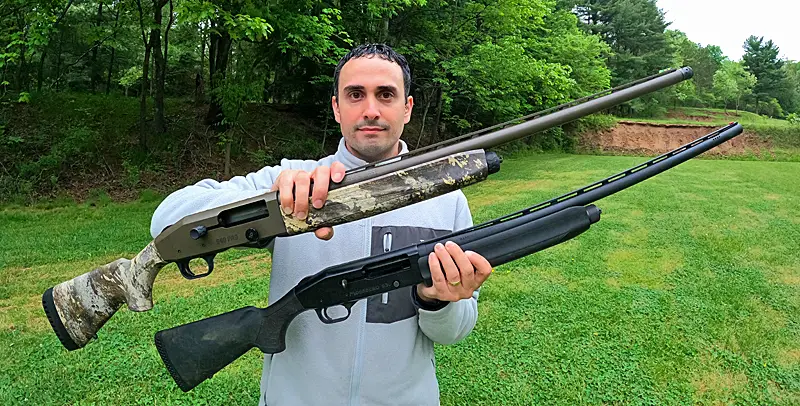
940 Pro Waterfowl Features
The 940 Pro sold me easily on its features. Primarily that it was much more corrosion resistant inside and out with a self-draining stock. A big plus for a gun I will use to hunt in rain and on boats. I also liked the creature comforts like the improved loading port and larger more manageable charging handle and slide release.
I didn’t care much about having camo on the stock, but it is a nice touch. The improved gas system was a biggie though. Mossberg re-engineered it to be able to fire 1500 shots between cleanings. Not that I would ever test that limit, but gone are the days where I have to wonder if the gas system needs cleaned between hunts to be reliable.
The Mossberg 940 Pro series of shotguns was designed with input from Jerry Miculek, one of the most decorated and impressive sport shooters the world has ever seen. It was the fact that he used the Mossberg 930 in competition that initially drew me to it years ago. The 940 Pro series builds upon that platform with many features which improve the gun’s function and reliability.
The 940 Pro Waterfowl Has:
- 3″ Chamber with 4+1 Capacity (Restrictor Plug Included)
- Oversized Charging Handle, loading port, and Slide Release
- Clean-running Gas-vent System (Up to 1500 Rounds Between Cleanings)
- Quick-empty Magazine Release
- Adjustable Length of Pull + Drilled and Tapped Receiver
- Adjustable for Drop at Comb/Cast
- A 28″ Cerakote Barrell in Patriot Brown
- Self-Draining Stock + Chrome-lined Chambers/Bores
- True Timber Prairie Stock
- X-Factor Extended Ported Accu-choke
- HIVIZ CompSight Fiber Optic Sight
If you watch the video down below I go into more detail showing most of the 940 Pro features side-by-side with the 930. My favorite feature on the 940 Pro is the difference in the fore-end stock compared to the 930. It is just tighter, more streamlined, easier to grab and use. I’ve long felt that the 930 front stock was too bulky. The 940 Pro fixes this perfectly. It is the ideal size and feels good in the hand.

Initially I was not a fan of the new front sight that 940 Pro comes with, I didn’t like the color or the shape. But it grew on me during the testing. Now I find I actually prefer it because I think it helps me aim more precisely for certain shots.
There was only one thing I did not end up a fan of though, and that is where the fore-end stock meets the receiver there is a little bit of give from the sides of the stock. It’s not loose, it doesn’t wobble or rattle. But if you turn it upside down and squeeze it, you can see it gives a little. I even recorded a video and send it to Mossberg’s customer service team, and they said that is normal and nothing needs done. It doesn’t affect performance; you cannot even tell in the field or while shooting it. I am more irritated to know they designed it like that than anything else.
But overall, the 940 Pro feels like it has a better fit and finish than the 930. The trigger feels crisper. The gun just feels like a higher level piece of machinery.
940 Pro Waterfowl Performance
All those features are nice. But if the gun doesn’t perform, they do not amount to much. Thankfully, it performed, and very well. I wanted to make sure my opinion of the 940 Pro was based in performance not me just salivating over the marketing. So before doing anything I put it to the test.
After getting the gun I immediately cleaned it and put it in my car to go to a sporting clays event that I already had scheduled. The first time I shot the gun was at a clay target on the course. I did a full course, 20 stations, 100 clay birds. The gun performed really well, in fact I ended the day with the high score and won the event. I was not the best or most experienced shooter there, but I had a great day and the 940 Pro Waterfowl proved it was more up to the task and very easy to pick up and get the hang of.
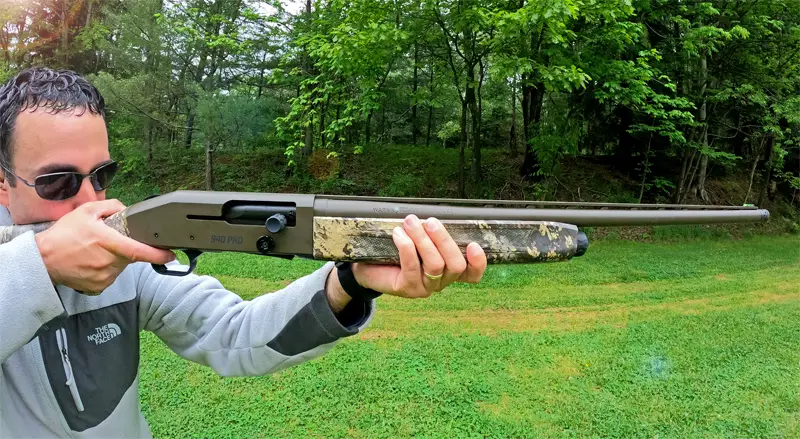
940 vs. 930 TESTED
Later I went to the range alone, just me and a video camera and I put both guns through a series of tests in their factory configurations. They had the same length barrel and are built with the same frame. Really the 940 Pro is an upgraded 930 with better features and furniture. The upgrades are significant, but they shine the most under grueling field conditions. I didn’t drop both guns in a river to test the self draining stock, or hunt for weeks in the rain to test the corrosion resistance, nor did I fire both guns thousands of times to see when they started to fail. The 940 Pro was designed to work better, and longer, under adverse conditions.
My testing was quite tame relatively speaking, but it did demonstrate several observable performance advantages of the 940 Pro under regular conditions. Watch the video below to see the tests and the full results.
- Weight – The 940 Pro weighed in at 1-2 ounces less than the 930, depending on the choke used. With the same choke it is a 2 ounce difference but the 940 Pro comes with an extended ported choke that weighs an ounce more than the 930’s factory flush choke. That is not enough difference to make a difference in my book but at least it was lighter and not heavier.
- Trigger Pull – Both guns had about the same trigger pull, an average of 4.5-5 lbs. My trigger pull gauge isn’t precise enough to get the measurements more exact to note a difference with how close they are. However, due to the slightly better trigger feel, the 940 Pro feels like it has a lighter trigger even though it technically does not.
- Recoil Test – I used the Mantis x10 Elite Shooting System to measure the recoil amplitude and recovery time for both guns by test firing 10 shots with each and averaging the data. The 930 actually had slightly less recoil, both in the data and in what I could feel as the shooter. But my 930 Waterfowl is actually an older 930 that has a ported barrel. Mossberg does not make ported barrels anymore for either the 930 or 940 pro. So if you were using a modern 930, the recoil would likely be the same or the 940 Pro would come out on top.
- Pattern Test – I tested both guns with their stock modified choke tubes and then with the same Carlson’s Sporting Clays extended ported modified choke. The Mossberg 940 Pro Waterfowl came out on top both times. It consistently put more pellets on paper in a 30” circle at 40 yards than the 930 did. For the test I used BOSS Copper Plated Bismuth 3″ shells with 1.5 oz of #4 shot at 1350 fps.
- Point and Shoot Drill – I did a quick turn, draw and shoot drill with two shots at stationary targets in order to practice target acquisition and how each gun points and is balanced, as well as the sights. I ran the drill several times with each. I learned two things. First, this drill looks pretty lame with my GoPro and second that I could not tell any meaningful difference between the guns. The 940 feels better in the hand, but in the shooting drill, both did well.
Some people are critical of the 940 Pro and the 930 because neither shoot 3.5” shells. Well, you do you, but when it comes to bird hunting you don’t need 3.5” shells, in fact the majority of hunters shoot worse with them, which is why I created the video Why You Should NOT Hunt With 3.5″ Shotgun Shells covering the science and practical application of why most hunters are hindered, not helped by shooting 3.5” shells. So you could take that as a con if you like, but I don’t want a shotgun that shoots 3.5″ shells myself. So I would rather have a gun like the 940 Pro that is not oversized or overengineered and is made for 2.75″ and 3″ shells only.
Watch The Video
Check out my Mossberg 940 Pro Waterfowl review video to see both guns compared and tested side by side, along with the full data and results of each test.
Final Thoughts and Recommendations
Feature wise, the 940 Pro Waterfowl is superior to the 930 Waterfowl. It has so many nicer features and little extras that help it last longer, feel better, be more reliable, function easier, and be more user friendly. Hands down, the 940 Pro wins on features. When it comes to test results, the 940 Pro has the edge over the 930, but the improvement in the test results is not drastic.
Out of the box, the 940 Pro is not going to magically make you a better shooter or a better hunter. But where it will really outperform the 930 is under grueling conditions. After weeks of duck hunting when the 930 locks up and needs a deep cleaning, the 940 Pro will keep going. When you struggle with the 930 to load shells and release the slide in the field with heavy winter gloves on, the 940 Pro will be much easier to operate. When weeks of hunting in driving rain saturates your 930 and it starts to rust and not cycle right, the 940 Pro will keep firing.
That is the beauty of the Mossberg 940 Pro Waterfowl. It works, it works good, and KEEPS ON WORKING when other guns fail, seize, or cannot be effectively handled under field conditions.
I think the 940 Pro Waterfowl is one of the best waterfowl hunting shotguns on the market for the money, in fact it may be THE best.
Price & Availability
The Mossberg 940 Pro Waterfowl has an MSRP of $1,092. I have seen the street price be as low as $850. The 930 Waterfowl has an MRSP of $707 and I’ve seen it for sale as low as $520. While I didn’t think to document prices historically, it seems the cost of the 930 has gone down since the 940 Pro was released. Which is expected. You could not go wrong with either gun, they are both leaders in their price brackets, but I do believe the 940 Pro is worth the extra cost. Worth it enough for me to upgrade to it from the very capable 930 which I have used as my main shotgun since I started hunting.
Be sure to listen to The New Hunters Guide Podcast, and check us out on YouTube.
Till next time. God bless you, and go get em in the woods!
George Konetes Ph.D. – Founder and Host of the New Hunters Guide.
The New Hunters Guide is simply what George wishes he would have had when learning how to hunt; a single place to get practical hands on knowledge about different kinds of hunting, gear, strategy, and tips that can improve your comfort and fun factor in the woods.
